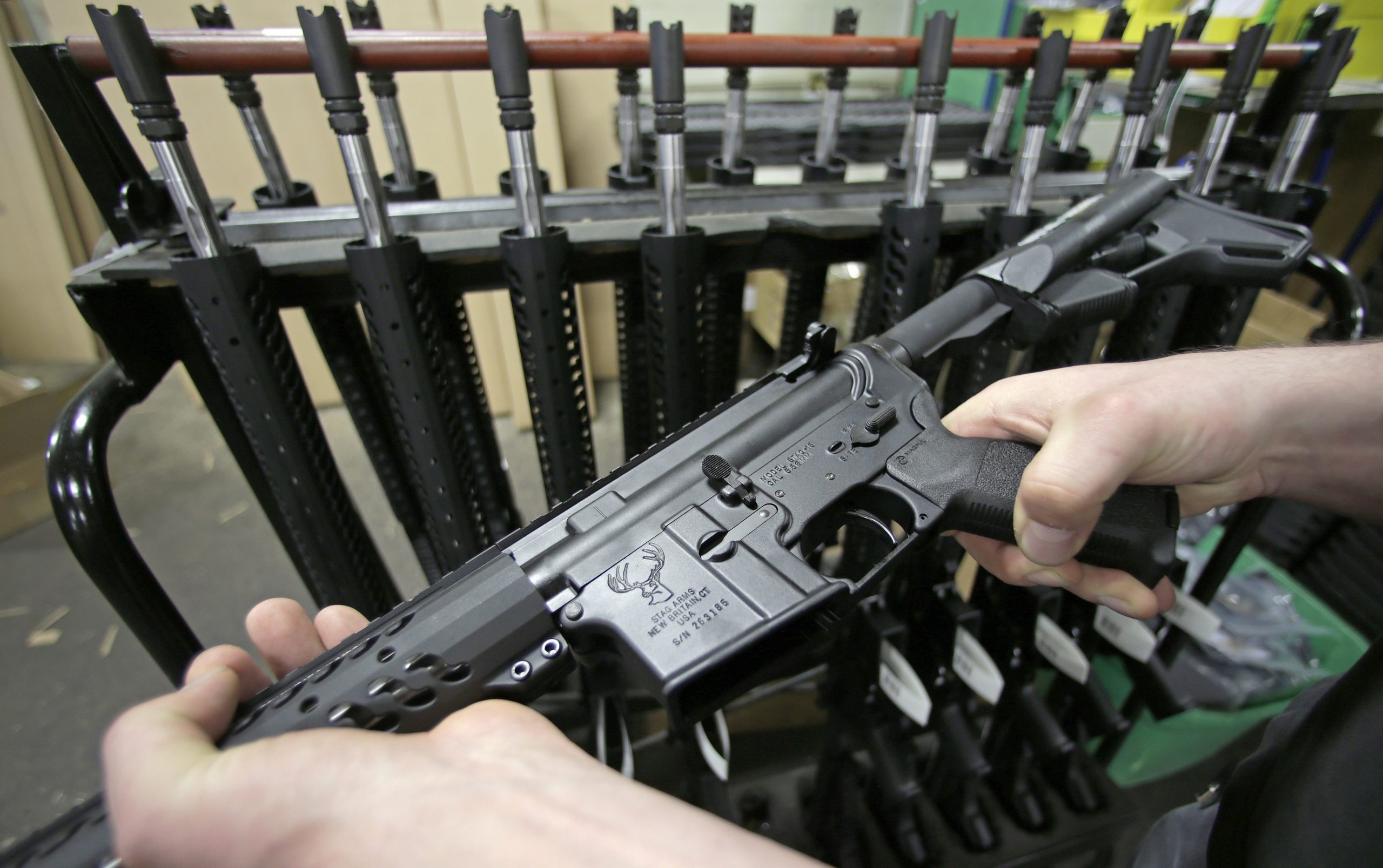At the national level, the #NeverAgain movement is working to elect candidates committed to passing stronger gun laws.
But in Florida, the state where it all started, a plan is afoot to achieve the Parkland students’ most aggressive policy goal — a comprehensive ban on AR-15s and other assault-style rifles — by taking the matter straight to voters.
After a long-shot attempt to get the state’s Constitution Revision Commission to put an assault-weapons ban on the 2018 ballot failed in March, a group of Florida Democratic politicians and attorneys has begun working on getting it ready for 2020.
The group includes elected officials like Parkland’s Congressional representative Ted Deutch and Mayor Skip Campbell of Coral Springs, as well as political operatives Ben Pollara, Eric Johnson, and Jon Adrabi.
In order to put the measure to voters in 2020, the group has to go through what’s known as a citizen’s initiative process. The first big step is getting enough Floridians to sign a petition to put the measure on the ballot.
Specifically, it needs 766,200 signatures from people representing at least 14 of the state’s 27 Congressional districts.
That’ll be easy, said Pollara, who worked on the state’s successful 2016 ballot initiative to legalize medical marijuana. The hard part comes afterward.
Pollara said the group will soon begin fund-raising for a campaign he estimates will cost $5 million. Part of the funds will go toward honing a case for banning AR-15s that resonates with centrist Floridians. Before the group can do that, it’ll need to make another sell: “We are having a very difficult time finding a Republican polling firm that will take this on.”
There’s also the matter of writing the measure’s actual language. The political team has engaged Jon Mills, a professor at the University of Florida, who was involved in drafting the successful medical marijuana initiative and about a dozen others.
“It’s complicated,” Mills said. “It’s important that if you want to cover the weapons people are concerned about and extended magazines, that the definition is accurate. But at the same time, you want to be reasonable, and don’t want to overextend.”
Once the initiative’s language is finalized, it will go before state judges for a review. Florida doesn’t allow ballot initiatives covering multiple subjects, nor any that mislead voters. Mills said he expects the National Rifle Association to file a challenge at this stage. “They’ll probably file briefs against it,” he said.
Should the initiative make it through judicial review, it will need to receive 60 percent of the votes cast on the question in November 2020. That’s a high bar to clear, Pollara admitted.
“Momentum shifts back and forth all the time, and it could be by 2020 that nobody cares,” he said. “But in the 20 years I’ve been involved in politics, I haven’t seen a moment like this on gun control.”
Also giving hope to Pollara and Mills is their success with the medical marijuana initiative.
In a state where Republicans currently control the Legislature and governor’s seat, progressive priorities have often been a nonstarter in the Capitol. But when voters got to decide directly on prescription pot, they embraced the change.

